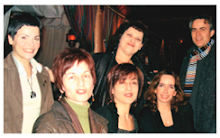When are online student comments about lecturers free expression, and when are they harassment?
By Kate Smith, Tuesday July 15, 2008, The Guardian
There was a time when a gripe about a university lecturer went no further than a grumble over a pint in the union.
Now social networking sites have created a forum akin to public stocks for professors who, as their students would see it, do not cut the mustard.
Such websites get to the heart of the row about the internet. On the one hand, it is heralded as a great democratising force where the voiceless can have a say. What greater way to tear down the ivory towers of academia than via the great leveller of the internet? Students view these sites as their domain, more so than a general public forum.
For the lecturers though, there is no moderator of taste and decency, allowing the worst excesses of human nature to come to the fore.
Universities are keen to use social networking sites as a means of marketing their university and connecting with students, but many academics think this may be playing with fire. Do universities need to formalise a policy on this growing trend?
The major change in higher education over the last 20 years has been the introduction of fees. As a result, students are no longer passive or accepting of the educational wares on offer. Now the dynamics of consumerism have entered the world of academia.
To read the whole article, see:
http://education.guardian.co.uk/students/news/story/0,,2290884,00.html
Wednesday, 16 July 2008
Pelted with cyber-tomatoes
Posted by
Epafi
at
10:27
![]()
Subscribe to:
Post Comments (Atom)


No comments:
Post a Comment